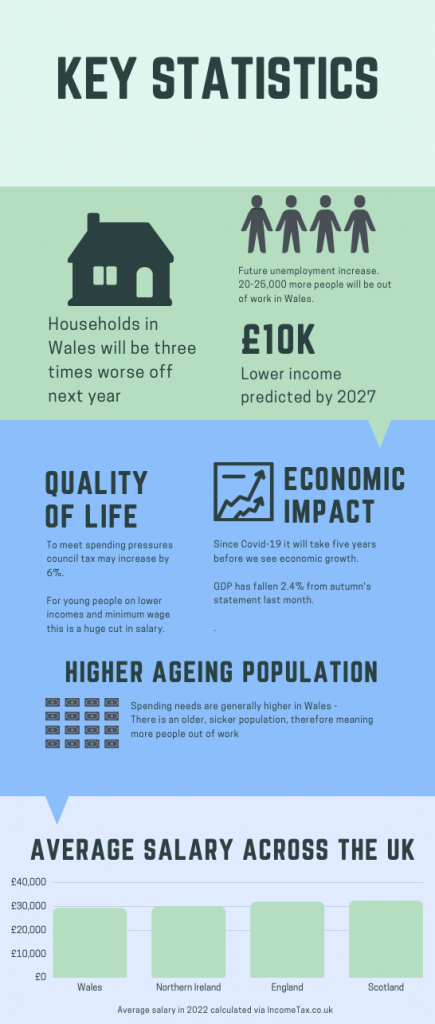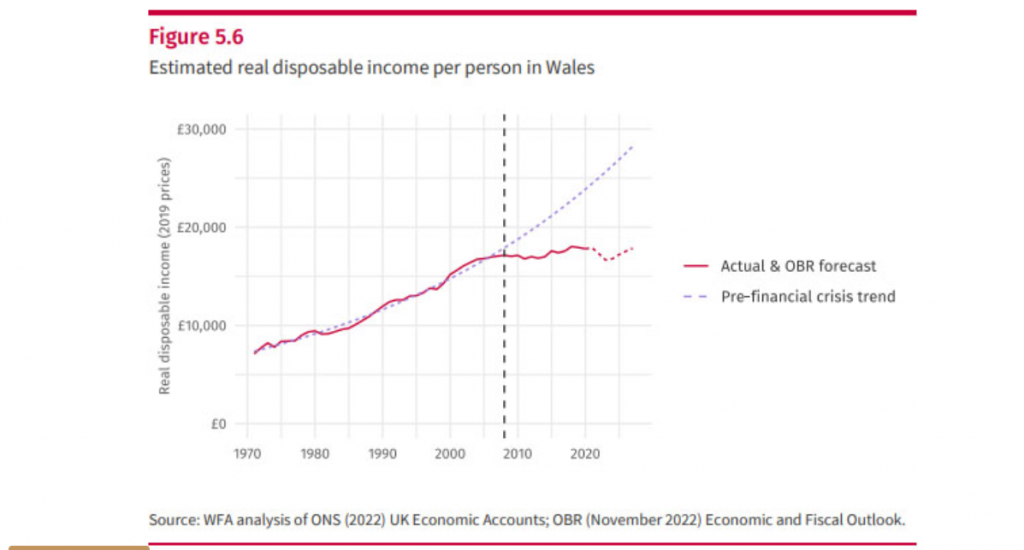Young workers among those worst affected by rising inflation according to the Welsh Budget Outlook 2022

Public sector workers in Wales, including doctors, nurses and teachers, are likely to see a fall in salary in the coming years, says a Welsh financial expert.
Cian Siôn from Wales Fiscal Analysis (WFA) explained that the projected increase in salaries would not cover the rise in inflation, translating to a 7% real term decrease in wages over the next two years.
This estimate forms part of the team’s third annual Welsh Budget Outlook report, which was presented at a briefing in Cardiff Bay on Monday morning.
Ahead of the Welsh Government publishing their own draft budget next week, the WFA report sets out the context beforehand, including predicted spending on public services. It also explores the set of policy options that governments will face in the next five years.
The sobering report outlines how 2022-23 will be a difficult year for the Welsh budget and the following years could be even more bleak for the country, including young people.

Time for a pay rise
While many young people have entered the working world during Covid-19, it has now been speculated that it will take another five years for Wales to see any economic growth. Stepping into 2023, the rate of employment is predicted to fall, with an extra 20,000-25,000 people estimated to be out of work in Wales.
Guto Ifan, member of the WFA team, said the longer term outlook “is not particularly rosy” either.
By 2027, the average annual salary in Wales is predicted to be worth £10,000 less, meaning income has fallen behind compared to other European countries.
Siôn said there has been barely any growth in real term wages for a decade.
“For younger public sector workers who may have been in the labour market for five or ten years, they haven’t really seen any real term growth in their wages which is clearly quite concerning,” he said.
Ifan said with incomes falling behind compared with pre-financial crisis trends, it is a concern that the majority of young people move between England and Wales. However, he cautioned that it is a “gloomy picture in terms of incomes in England as well.”
By 2027 the average annual salary in Wales is predicted to be £10,000 lower
A costly crisis
In response to the current cost-of-living crisis there is approximately £2000 support for the average household in Wales this winter, including money from the Energy Price Guarantee. This means a disposable income boost of up to 10% for the poorest households. However, many households who don’t receive means-tested benefits will be paying three times as much for energy as they did three years ago in 2023.
The report illustrates options that are available to the Welsh Government as it prepares its Draft Budget, including revising its current spending plans for the NHS and local government.

It suggests the government could increase the Welsh Rates of Income Tax, an option that first minister Mark Drakeford said would be “powerfully considered” at a recent First Minister’s Questions.
Ifan told Alt.Cardiff that raising income tax would be a progressive way of raising additional revenue, while in contrast, raising council tax levels would be regressive and would hit the poorest households the hardest.
The Welsh government’s Draft Budget will be made available on 13 December, with the final budget published on 3 March next year.
